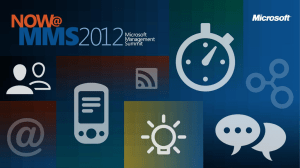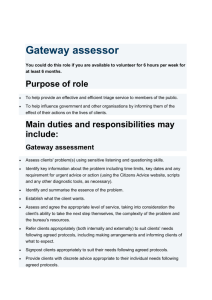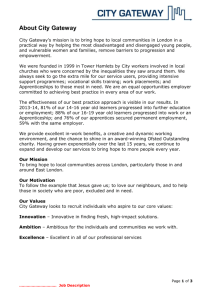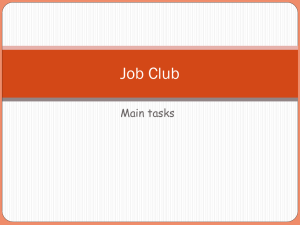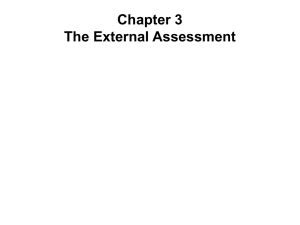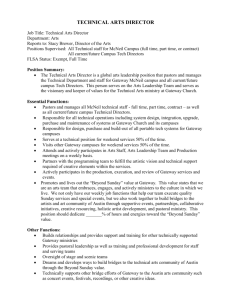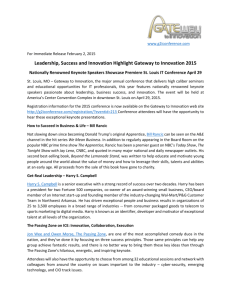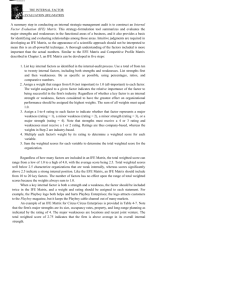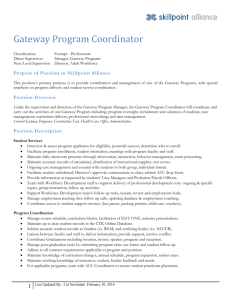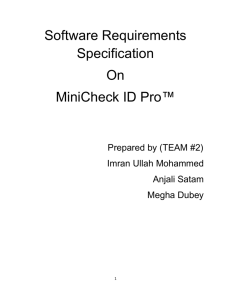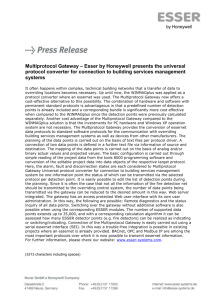Chapter 4 The Internal Assessment
advertisement
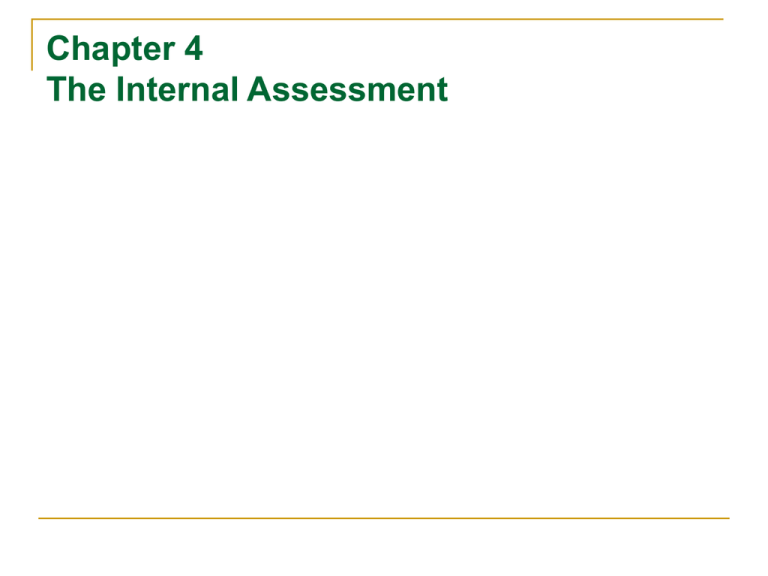
Chapter 4 The Internal Assessment Nature of an Internal Audit Basis for Objectives & Strategies Internal strengths/weaknesses External opportunities/threats Clear statement of mission Internal Audit Parallels process of external audit •Information from: •Management •Marketing •Finance/accounting •Production/operations •Research & Development •Management information Systems Resource Based View (RBV) Approach to Competitive Advantage Internal resources are more important than external factors Resource Based View (RBV) 3 All Encompassing Categories 1. Physical resources 2. Human resources 3. Organizational resources Resource Based View (RBV) Empirical Indicators Rare Hard to imitate Not easily substitutable Integrating Strategy & Culture Organizational Culture Pattern of behavior developed by an organization as it learns to cope with its problem of external adaptation and internal integration…is considered valid and taught to new members Integrating Strategy & Culture Values Beliefs Legends Heroes Symbols Cultural Products Myths Rites Rituals Management Function Stage When Most Important Planning Strategy Formulation Organizing Strategy Implementation Motivating Strategy Implementation Staffing Strategy Implementation Controlling Strategy Evaluation Marketing Customer Needs/Wants for Products/Services 1. Defining 2. Anticipating 3. Creating 4. Fulfilling Marketing Marketing Functions 1. Customer analysis 2. Selling products/services 3. Product & service planning 4. Pricing 5. Distribution 6. Marketing research 7. Opportunity analysis Finance/Accounting Finance/Accounting Functions 1. Investment decision (Capital budgeting) 2. Financing decision 3. Dividend decision Production/Operations Production/Operations Functions Process Capacity Inventory Workforce Quality Research & Development Research & Development Functions Development of new products before competitors Improving product quality Improving manufacturing processes to reduce costs Management Information Systems Information Systems CIO/CTO Security User-friendly E-commerce IFE– Gateway Computers (2003) Weight Rating Wtd Score 1. Several new senior executive with worldclass skills and leadership experience 0.05 4 0.40 2. Continuous decline in operating costs and cost of goods sold 0.05 3 0.15 3. Well-known brand name 0.05 3 0.15 4. Consumer Reports (Sept 2002) recommended Gateway 500X as #1 0.10 4 0.40 5. As a direct seller, Gateway holds high brand recognition 0.05 3 0.15 Key Internal Factors Strengths IFE– Gateway Computers (2003) Weight Rating Wtd Score 6. Gateway is diversifying into non-PC products 0.10 3 0.30 7. Good relationship with its suppliers. 0.05 4 0.20 8. Economies of scale, the 6th largest PC maker I the world 0.05 4 0.20 9. Gateway retails stores excellent 0.05 3 0.15 Key Internal Factors Strengths (cont’d) IFE– Gateway Computers (2003) Weight Rating Wtd Score 1. High operating expense (22% of revenue vs. 10% for Dell) 0.05 3 0.15 2. Almost no budget for R&D vs. Dell’s 18% of revenue 0.10 1 0.05 3. Low return on assets ratio 0.025 1 0.10 4. No niche market 0.025 2 0.05 Key Internal Factors Weaknesses IFE– Gateway Computers (2003) Weight Rating Wtd Score 5. Shortage of cash due to successive losses 0.10 2 0.20 6. Limited number Gateway stores 0.05 2 0.10 7. Weak performance in overseas market 0.10 2 0.20 TOTAL 1.00 Key Internal Factors Weaknesses (cont’d) 2.85
